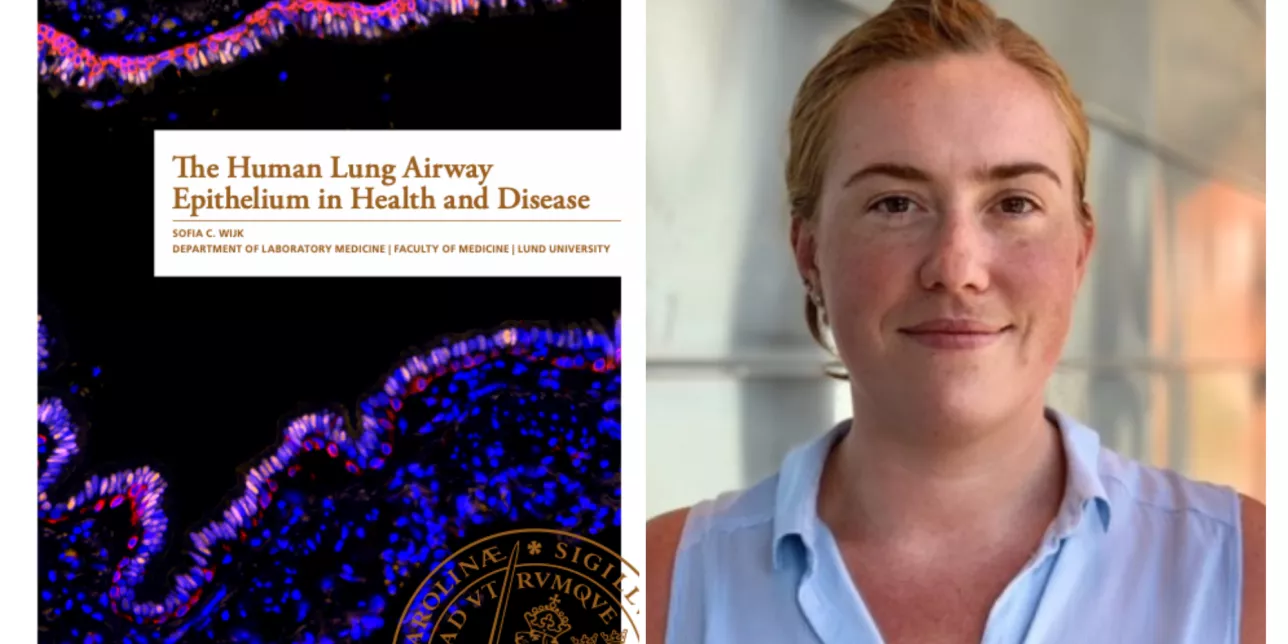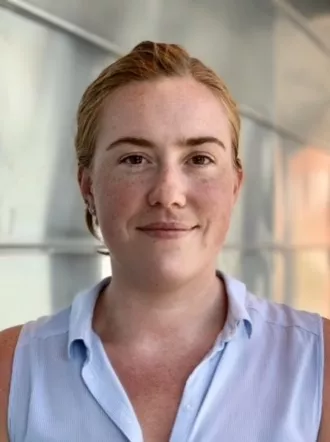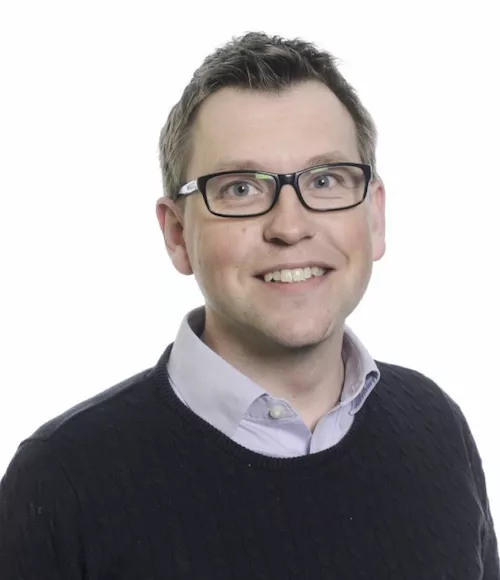What have your Ph.D. studies focused on?
“My research has focused on chronic lung diseases, specifically chronic obstructive pulmonary disease (COPD) and idiopathic pulmonary fibrosis (IPF),” began Sofia.
Chronic lung disease is becoming more common globally, with COPD the third leading cause of death worldwide, according to the World Health Organization. This is in large part due to several risk factors where smoking, pollution, and ageing are among the most prevalent. Today there is no real cure for these diseases. Patients' symptoms are treated to alleviate them and delay disease progression, but lung transplantation is the only long-term solution.
“We know that in healthy lungs the epithelial cell layer can regenerate itself after injuries like infections. As part of our vision to find future cell-based therapies for these diseases, I have been studying cells in the lung airways that can regenerate tissue. I studied cell tissue samples from healthy lungs, comparing them to similar cells from patients with COPD and IPF and trying to find how these cells are affected by these diseases and why regeneration does not work. In fact, in COPD and IPF, what happens is that the cells, the stem cells, try to heal the damage, but they do so in a dysregulated way, so the healing responses and information signals combine in a way that makes things worse. So, I have also been trying to understand what else could be influencing these stem cells and how to direct them to carry out a healthy regeneration process and not go towards the disease path,” described Sofia.
Can you tell us more about the cover of your thesis?
Looking at the cover image of Sofia's Ph.D. thesis, one can see an illuminated, colorful image of the epithelial layer of a human airway. "In essence, I took a picture from my immunofluorescence analysis which turned out both interesting and beautiful. What I have stained for in that picture are basal cells and ciliated cells, which are the two cell types that I have been working with most closely. When I first began the immunofluorescence analysis, I remember sitting at the computer and looking everywhere, at all the colors. It is incredible to see your cells in that way, not as dots on a FACS plot but how they look in their naïve environment and how the different cell types interact,” described Sofia.
How did you end up doing a Ph.D. at Lund Stem Cell Center?
“It was an interesting journey. My educational background is originally in engineering with a focus on biotechnology. It was during my master’s degree studies here at the Lund University Faculty of Engineering (LTH), that I decided I wanted to try to find a connection to more biological research, since I had always been interested in stem cells and life science.So, I found this course, the preparatory program, through which I was able to do my master's thesis project with my supervisor, Mattias Magnusson, and his research group. When that was done, I had the opportunity to stay on to do my Ph.D. here. I wanted to continue because I thought stem cell research was interesting, and I wanted to learn more about the academic field as a whole,” recounted Sofia.
What have you found the most enjoyable during your Ph.D. studies?
“The most enjoyable aspect had to be the process of learning how research projects are carried out - the publishing process, all the behind-the-scenes stuff. I enjoyed finding out how a paper comes together and all the challenges that come with it. Even better though, was when you have your hypothesis, you carry out your experiment, and you get the result that you expected. This was amazing, something that does not happen often, but when it does, it is exciting,” she affirmed.
What has been the most challenging aspect?
Sofia went on to describe the challenges she met during her time as a Ph.D. student and how she worked to overcome them. “In addition to a lot of learning along the way, the main challenge during my Ph.D. studies was the access to tissue samples. Due to the pandemic situation, our work with newly biopsied lung tissue had to be put on the back burner since we were not able to collect new samples. So, we had to change strategy a bit and find a way to work with the data we had and see if we could re-analyze it or view it differently and maybe find information that had been previously overlooked with the prioritization of new cells. So, this was a challenge, but it was great finding a new way forward and I'm proud of us overcoming this and having published,” she stated.
What are your plans following your Ph.D. defense?
After several years in academia, Sofia is ready for new challenges in a different sector. “I plan to start looking for a career outside of academia. Specifically, I would like to take on some new challenges in life sciences, maybe for a life science company or someone else in the industry. Now I've experienced academia and how this works, I also want to see how things are on the other side,” she said.
Any tips or advice for future Ph.D. students?
Speaking from her own recent experiences Sofia recommended that future Ph.D. students keep a few plans in their back pocket, a plan B or C. “Have an alternate strategy for going forward and try to have a few projects going at once or collaborate with someone else to make sure that you also get your publications. Keep in mind the fact that as Ph.D. students there is a time limit and publishing requirements. These are things I wish someone had told me when I was first starting,” concluded Sofia.




